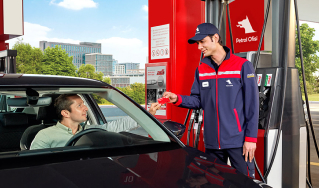Managing its operations and activities with a "sustainable environment" vision, Pegasus Airlines made its first domestic flight between Izmir and Istanbul using Sustainable Aviation Fuel (SAF) supplied by Petrol Ofisi Group.
Pegasus Airlines manages all of its operations and activities with a clear vision for a "sustainable environment" and has conducted its first domestic flight between Izmir Adnan Menderes Airport and Sabiha Gökçen Airport on Tuesday, March 1, 2022, using Sustainable Aviation Fuel (SAF). Procuring SAF fuel originating from Neste Corporation from Petrol Ofisi, Pegasus will operate one domestic flight from Izmir with SAF every day throughout March.
"Reducing the carbon footprint of the aviation industry is critical."
Pegasus Airlines CEO Mehmet T. Nane stated that reducing the carbon footprint originating from the aviation industry is of critical importance on the road to sustainable aviation. "As per the Paris Climate Agreement, which Turkey is a part of, a 50% reduction in carbon emissions is aimed by 2030. One of the most significant factors that can make this possible is the increase in Sustainable Aviation Fuel usage. Since 2019, we have been operating certain international flights with SAF, and we carried this practice to our domestic flights in cooperation with Petrol Ofisi Group. As Pegasus Airlines, we are happy and proud to have carried out our first domestic flight with SAF, which has low carbon emissions and is produced from environmentally friendly and sustainable sources," he added. "We aim to continue our efforts in the fleet transformation fields and offsetting projects in the medium term, as well as in the fields of new technology aircraft and carbon capture technologies in the long term. We aim to continue working with all our strength to support sustainable aviation in line with the IATA decision "Net Zero Carbon Emissions by 2050."
Petrol Ofisi Group is at service with its advanced technology products both today and in the future.
Emphasizing that Petrol Ofisi Group leads the sector with its superior product and service quality in every field, CEO Selim Şiper said, "We offer progressive solutions to today's and the future's needs with our advanced technology products that reflect our sustainability approach in marine and aviation fuels as well as on land. Since 2019, with our new generation Active-3 technology fuels, we have been offering fuels that clean automobiles' and commercial vehicles' engines, prolong their life, and minimize emissions with higher performance and fuel savings. Likewise, in October 2019, we carried out the first supply of the new generation marine fuel, Very Low Sulfur Fuel Oil - VLSF, in Turkey, within the scope of IMO criteria established in line with global sustainability goals in maritime. With our PO Air brand in aviation fuels, we are a member of IATA, provide aviation refueling at 72 airports in Turkey, and offer services to more than 200 airlines at international standards. We also support the aviation industry with our extensive infrastructure, high HSSE standards, experience, and expertise. We also provide uninterrupted service to approximately 250 thousand aircraft per year with the principle of 0 errors and 0 delays. As one of the most important values born on these lands and the sector leader of the country, we consider it our duty to contribute to Turkey today and in the future as we have done in the past. Therefore, we are proud and happy to supply the first domestic flight of Pegasus Airlines, one of the most important assets of our country's aviation, with Sustainable Aviation Fuel (SAF)."
The road to sustainable aviation
Pegasus conducts various practices on the road to sustainable aviation, carrying out its first domestic flight with SAF, a sustainable version of Jet A and Jet A-1 fuel, and a clean alternative to fossil jet fuels. In line with IATA's "Net Zero Carbon Emissions Until 2050" decision, Pegasus is one of the leading airline companies in the world to make this commitment, and the company has determined its interim period target for 2030 as well. Shaping all its efforts in line with this goal, Pegasus foresees savings of up to 15-17% in fuel consumption compared to the previous generation aircraft as part of its strategy to build its entire fleet from Airbus NEO model aircraft in 2025. Linking importance to reducing carbon emissions at their source, Pegasus also works on emission reduction studies at the basis of the process, with operational measures such as rejuvenating the fleet, reducing weight in aircraft, and optimizing routes. In line with the principle of transparency, Pegasus has begun sharing the emission indicator from its flights on the investor relations website on a monthly basis as of October 2021. The company plans all these efforts in parallel with its governance strategy in the field of Sustainability (ESG) and support of its outputs.


